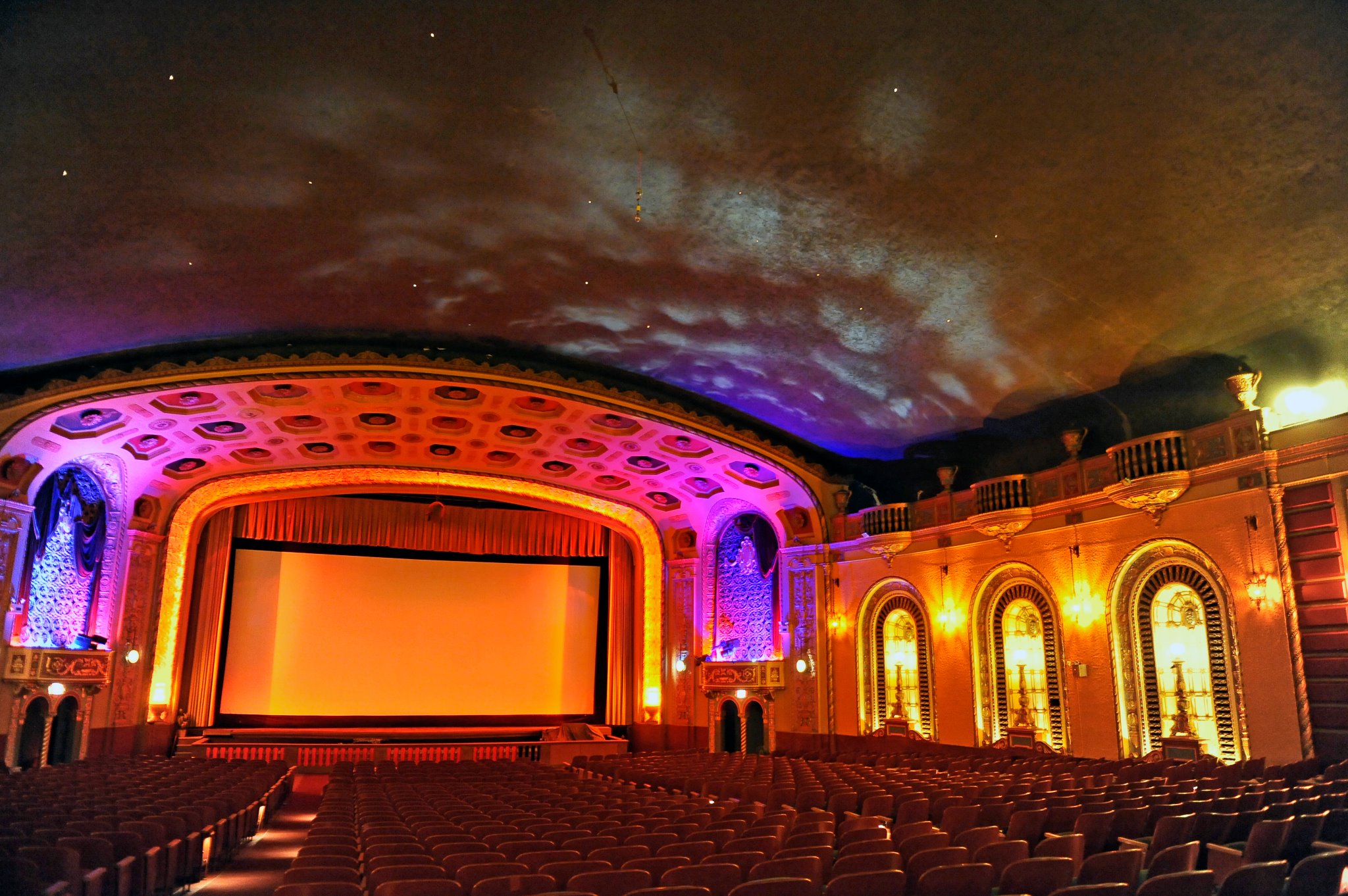Patio Theater To Reopen, But Is There A Future For Neighborhood Theaters?
By Joel Wicklund in Arts & Entertainment on Nov 24, 2014 5:00PM

Photo from Patio Theater website.
As it often does when Eddie Carranza is involved, the news broke suddenly late last week that the Patio Theater would reopen, with Carranza's team managing the theater while owner Demetri Kouvalis continues to try to find a buyer. The Patio opens its doors again this Friday night with a free screening of Indiana Jones and the Temple of Doom.
For those unfamiliar with Carranza's checkered history, that might seem like good news. The Patio is a charming neighborhood theater and, even needing new seats and balcony repairs, its main auditorium is arguably even more attractive than the Music Box. A noble attempt by Kouvalis to reopen the theater in 2011, after ten years of dormancy, ended last April. The venue simply wasn't making enough money to pay for needed repairs to its heating and air conditioning systems.
Despite overly harsh criticism from Ald. Tim Cullerton that Kouvalis didn't do enough to save the theater, the Patio accomplished some impressive things in his short tenure. There was a successful Kickstarter campaign to upgrade to expensive, industry-mandated DCP projection capabilities (something Facets Multimedia's Cinematheque, the local venue that most desperately needs the changeover, has yet to do). And when second-run showings of Hollywood fare weren't profitable, Kouvalis took a chance on an adventurous programming venture with the Chicago Cinema Society. It didn't work and it was probably the wrong strategy for the blue-collar neighborhood, but Kouvalis deserves credit for trying the road less traveled.
If Kouvalis was well intentioned but not business savvy, Carranza has come across a combative bottom-liner. His operation of the now-closed Congress Theater was plagued by controversy and his early handling of the Portage Theater after buying it was a disaster. Since Carranza turned over management duties to his crony Charlie Burns, the Portage has done a better job on the PR front, but questionable practices (including Burns misinforming this writer about the theater's DCP capabilities) remain common.
Chuck Sudo/Chicagoist
The Patio has DCP-ready projection, which not only allows for newer DCP releases, but also can make Blu-ray projections look close to theatrical-worthy in quality. This, along with 35mm and 16mm projectors, gives the theater lots of programming flexibility, but it remains unclear how they will use it. So far, the schedule consists of some revivals, but also several documentaries that already played quite recently at the Portage (Mistaken for Strangers, Take Me to the River, Pay 2 Play), suggesting this initial schedule was hastily put together.
To be fair to Carranza, Kouvalis or anyone who tries to make a go of it running an independent movie theater—and especially an older one in physical decline—it is a near-impossible endeavor. The mainstream movie industry has for decades seemed intent on killing off the theatrical market that was once its bread and butter. DVD releases right on the heels of theatrical windows put second-run theaters on the endangered species list. Then, the rush to go digital put many small theaters out of business or deeply in debt. Now, with video-on-demand the preferred platform for lower-budgeted films, it's an even greater challenge for an independent to counter-program against the multiplex chains.
A few years back, Music Box Theatre owner William Schopf told the Chicago Tribune's Michael Phillips that the crown jewel of the city's repertory movie scene was his "tax write-off," supported mainly by his law career, building investments, and the welcome and surprising success of his movie distribution company, Music Box Films. If a well-maintained, smartly programmed and generally beloved institution like the Music Box needs such outside economic power behind it, one can only imagine what neighborhood theaters without deep pockets are up against.
Ultimately, the global and relentless push of all entertainment to at-home and mobile technology has made operating a movie theater of any kind a gamble with terrible odds. The cost-effective appeal of streaming services and video-on-demand has taken a toll not only on theaters, but on the way the public values cinema. Movies are available faster, cheaper and without much effort, which is making them much less special for generations growing up with that delivery as their standard.
Independent theaters, whether they are specialized repertory programmers or "Mom and Pop" second-run houses, require a devoted patronage that is vanishing quickly. This limits the possibilities for passionate movie missionaries and opens the door for opportunists like Carranza.
The best, last chance for a neighborhood theater like the Patio or Portage to survive in any worthy form may be a patron who can afford to take a financial loss in favor of a cultural gain. Quentin Tarantino keeps the New Beverly Cinema in Los Angeles open as his personal cinematic playpen and local movie buffs benefit.
Calling all Mr. or Ms. Moneybags out there who care about cinema (Mr. Scorsese? Mr. Spielberg?): we have some theaters that need your well-funded love.
Correction: Julian Antos of the Northwest Chicago Film Society wrote to inform us that the 35mm and 16mm projectors were removed from the Patio upon its closing last April.